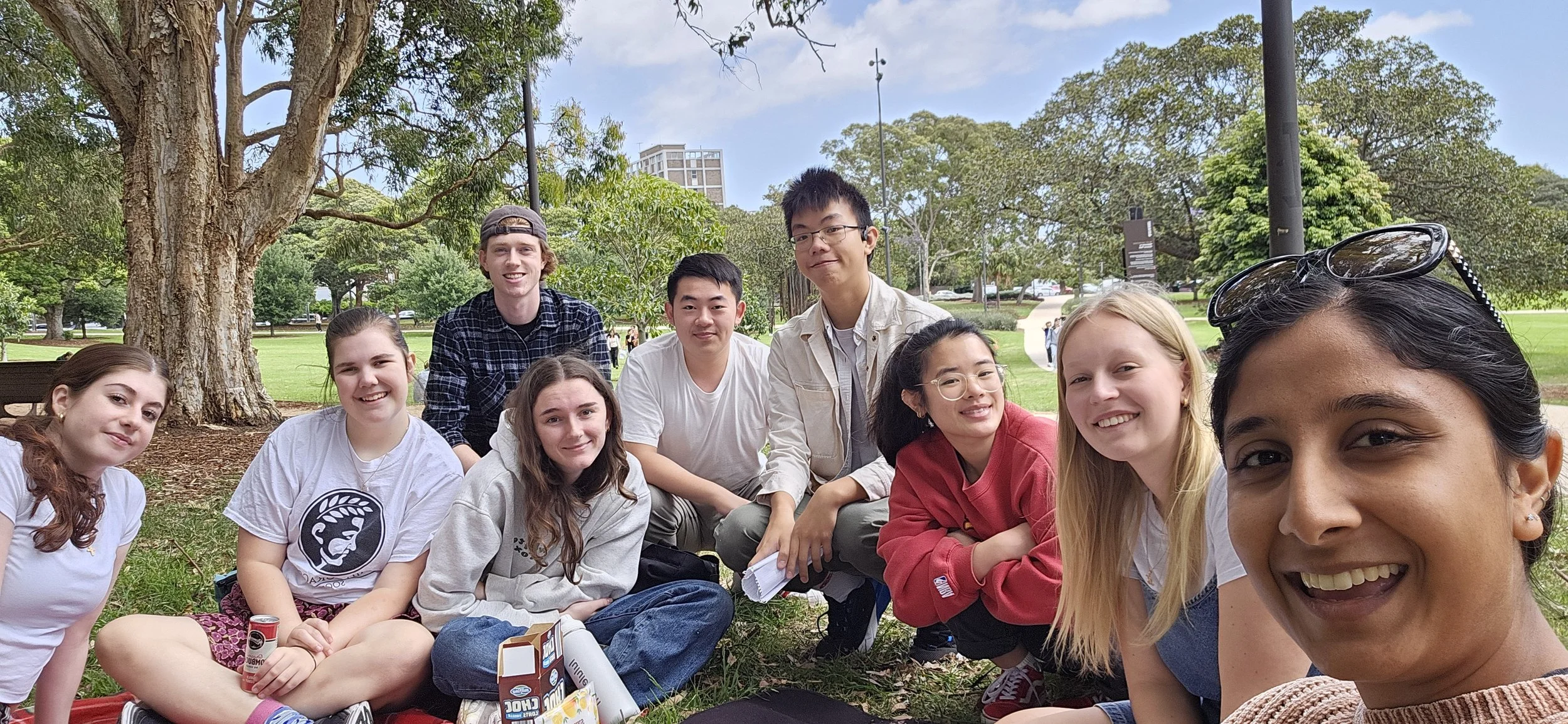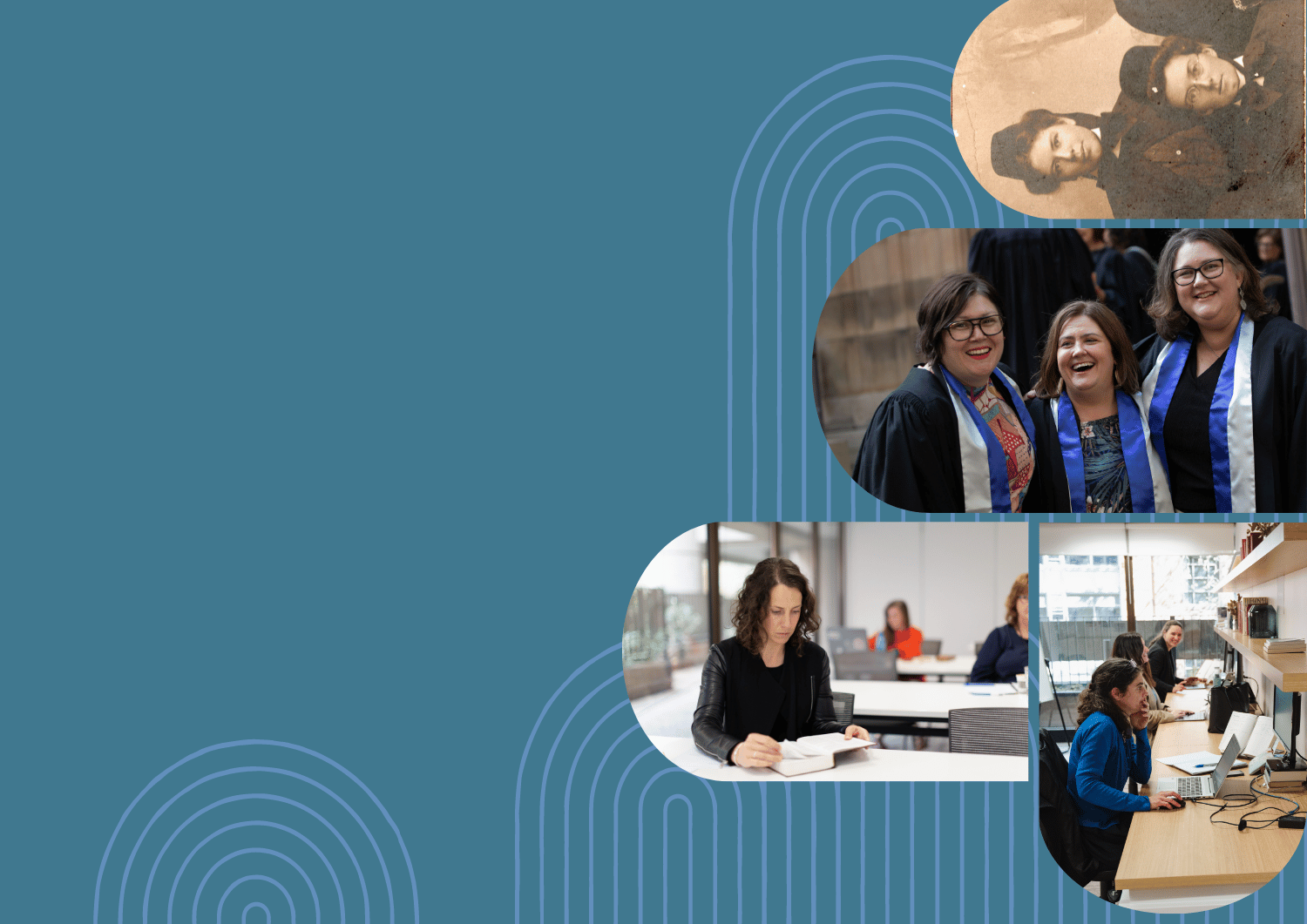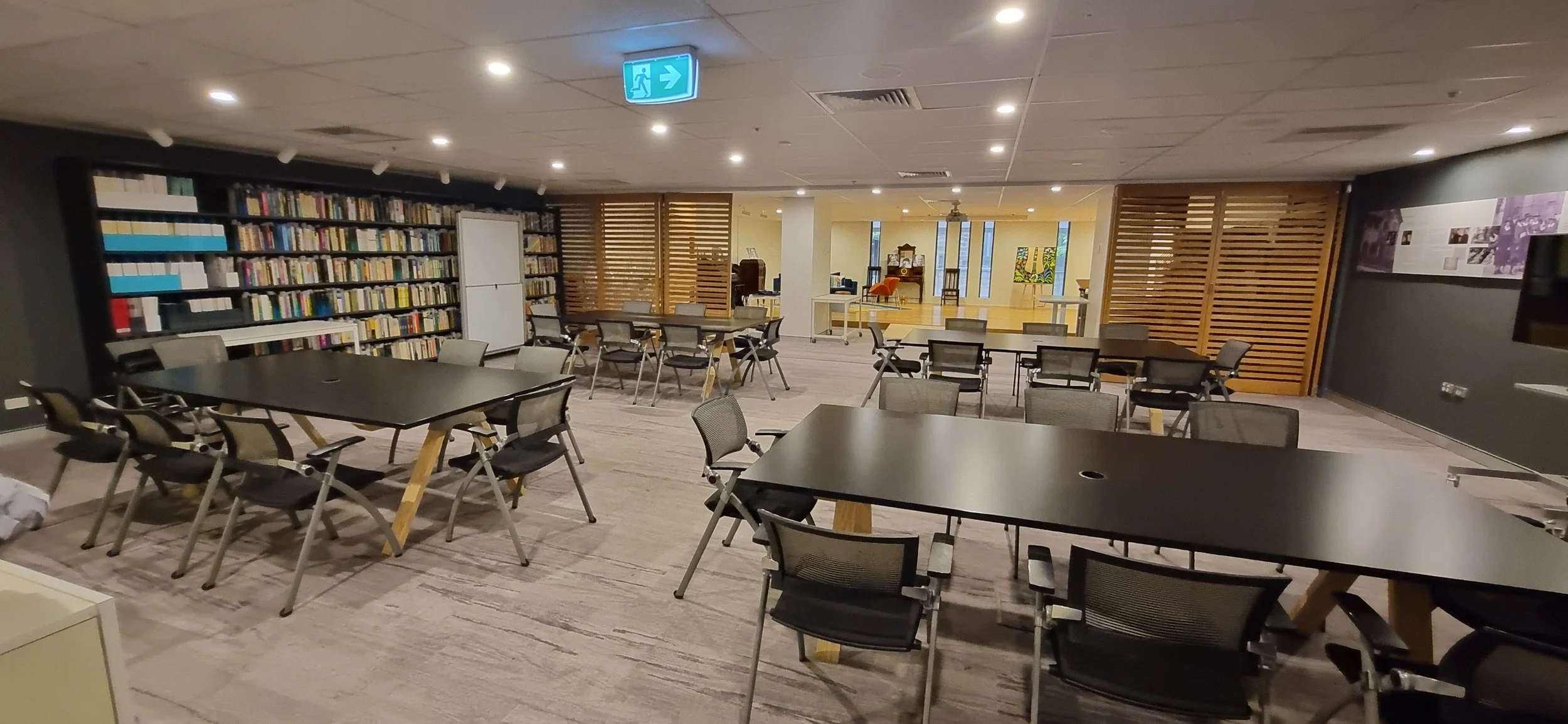Global Call: How MAC Lecturer Jill McGilvray connects with Christian women around the world
By Sophia Russell
Jill McGilvray, Chair of the Langham Partnership International Council
One Monday night, Jill McGilvray made a cup of tea and sat down in her home in the Blue Mountains to take part in a virtual conference call.
It’s a scene that has become increasingly common this year as we connect online because of the Coronavirus pandemic. For Jill, though, this was an extraordinary meeting. That night, her screen lit up with Christian women leaders of all ages, a tapestry of faces from lounge rooms and home offices around the world.
“It was a really exciting call to be on,” says Jill. “We talked about what COVID-19 was doing in our countries right now, and how we can pray for one another. Women shared their personal experiences and what’s going on with their families, but also what’s going on with their churches. They are looking for ways to be salt and light in their communities, to keep in touch with people.”
This wasn’t the first time these women had gathered together. Last year, they met in Cyprus as delegates of the Global Women’s Forum: a preaching conference that drew 50 women from 38 countries, each one involved in bringing God’s Word to others, for training and encouragement. Langham, a ministry that Rev. Dr John Stott founded in 1969 which partners with Christian leaders around the world, held the forum for the purpose of equipping women to guide their churches into maturity.
Jill’s involvement started six years ago, when she joined Langham Partnership Australia as a committee member after working in bereavement counselling and pastoral care for over 20 years, authoring the book God’s Love in Action, Pastoral Care for Everyone and lecturing on the subject of grief at Mary Andrews College. When she heard Langham’s first ever women’s preaching forum was in the works, Jill leapt at the opportunity to attend.
“I basically begged to go!” she laughs. “I kept pinching myself as I sat down to morning tea with a group of Christian women from, say, Mongolia, Botswana, Vanuatu, Ukraine, the Philippines and Panama. Here we were: being God’s women all together for a week, talking about all the issues of what it means to be a woman in the church . . . and more recently in our conference call, encouraging each other in our ministries.”
Jill’s virtual meeting with Gladys, Isdihar, Dwi, Nelly and many other women of Langham, who are seeking to be salt and light to those around them in their respective countries.
Being a Christian in the majority world
Many women living in the majority world – that is, the developing countries of Asia, Africa and Latin America – face unique challenges when it comes to growing in their knowledge of God.
Good bible teaching in their native tongue can be rare, as many who teach or preach in the majority world have no formal theological education. There is often little access to training or resources that address local issues from a biblical perspective. At the forum, many women also reported being overlooked and ignored, hindering their ability to learn and minister to others.
According to Jill, this is why Langham’s work is so valuable. “Sometimes we talk about the global church as being a thousand miles wide, but half an inch deep. That’s what Langham really wants to address,” says Jill. To nurture indigenous bible literacy, the Langham ministry trains men and women scholars, preachers and lay leaders in biblical knowledge, supporting them for a lifetime of service in their communities. This happens not just through large-scale events like the women’s forum, but also Langham Preaching Clubs: small, locally based mentoring groups which collectively train over 5,000 men and women preachers across the majority world.
Jill’s role in this work is largely one of oversight, especially with her recent appointment as Chair of the Langham Partnership International Council (effective October, 2020). She’s not disconnected from people though; thanks to her experiences—she’s taught pastoral care courses at Mary Andrews College—Jill’s leadership style is profoundly relational: “I pay attention to those around me, listen to them carefully, and choose to support them as I can, ensuring everyone’s voice on the Langham board is carefully heard.”
But most of all? Jill listens. “I am a learner,” she says. “I’m absolutely learning from every one at Langham, some of whom are in much more difficult circumstances than I ever will be.”
What you learn when you really listen
Jill believes there are many lessons to learn from the Christian women she knows through Langham, particularly in the way they use their biblical training to be salt and light to those around them.
“These women teach us to be gracious and to resist bitterness. That’s something that I find personally really challenging: the call to godliness. And they do that out of the depths of knowledge and faith that comes from their determination to dive into the Bible . . . even though many of them live in really difficult places.”
Jill points us to Gladys, a psychologist who ministers from a biblical perspective to people experiencing trauma in Africa. And Izdihar who, overwhelmed by the need she saw at her front door, started a ministry alongside her husband to care for Syrian refugees in Lebanon. She speaks wonders of Dwi, a Langham scholar who brings the gospel to bear on the shame culture she lives in, and Nelly from Argentina, who went from having little knowledge of the Bible to teaching others how to read it for themselves.
These women – and many of the other leaders Langham supports – encourage Jill not just through their actions, but also through their faith and perseverance in environments rife with discrimination, terrorism and poverty. “If you’re a Christian and you’re a minority group, it’s a very different perspective. You have to think, can I actually forgive? Can I actually keep holding God’s hand as I’m walking into circumstances that are very difficult?” says Jill.
“These women teach us to be gracious and to resist bitterness,” she says. “That’s something that I find personally really challenging: the call to godliness. And they do that out of the depths of knowledge and faith that comes from their determination to dive into the Bible . . . even though many of them live in really difficult places.”
It’s a pertinent lesson to learn as we navigate a COVID-19 world with its hardships and restrictions. Jill notes that while it is tempting to be indignant about our disrupted routines and curtailed freedoms, despite the privileges of living in Australia, the graciousness with which the women from Langham – many of them well-versed in suffering – models for all of us how to accept these situations as opportunities to grow in our faith.
As they pray together in that virtual meeting, Jill recognises that they are a reminder that although the women are different, they strive for similar goals: to rejoice in the Lord no matter the circumstance, share his Gospel with others, to love and care for the communities we live in.
And we can learn from each other – if we listen.
“They are finding God’s comfort in this time, and are trying to express that in their own environments, their own countries,” says Jill. “I feel, having begun to listen to the voice of the global church, it has widened and deepened my faith.”
When the pandemic hit, Sarah Condie, co-director of the Mental Health & Pastoral Care Institute, began to feel a bit discombobulated. So she invited her friend, Jill McGilvray, MAC lecturer, ministry leader and author, to her home for a (socially distant) conversation. Their topic? Grief, an area Jill has studied and worked in as a counsellor for over 20 years. So grab your cup of tea, settle back and have a listen to their very helpful conversation. Watch it here.
– Sophia Russell is a freelance writer and editor living in Sydney.














Bibles and barbecues: how Living Water is reaching Redfern
Living Water, a church plant under the Evangelism and New Churches arm of the Anglican Diocese of Sydney, regularly holds services and gatherings in Redfern Park, rather than inside their building. By doing this, they are better able to engage with the community of Redfern, and also support their largely Indigenous congregation to embrace their connection to country.
Recently, Living Water Church, through one of their team members Bridget Allen, were recipients of a Women in Ministry Support Scheme grant from ADM. Part of this grant has been used to purchase a portable barbeque which the church uses to cook during their outside gatherings. This can draw a crowd as people approach for a tasty meal, and then meet the church members and hear the gospel proclaimed.